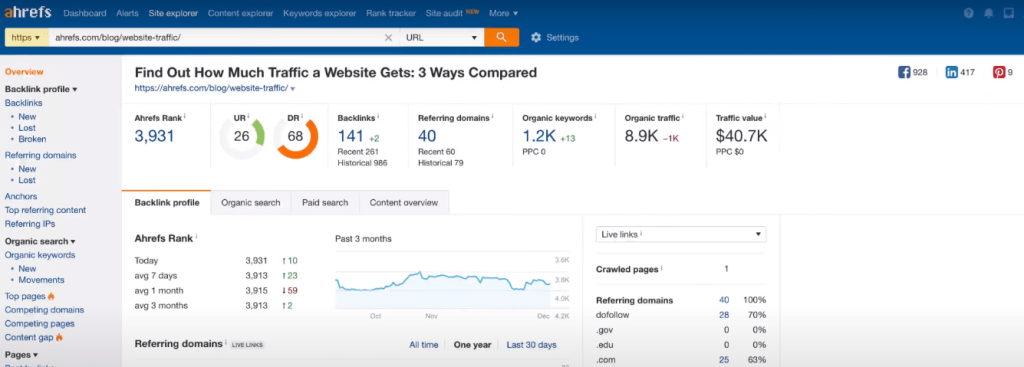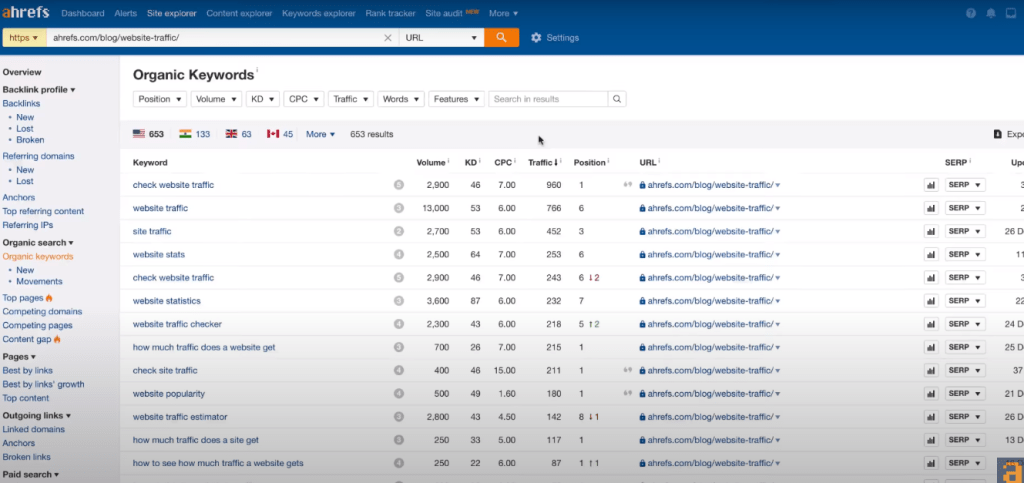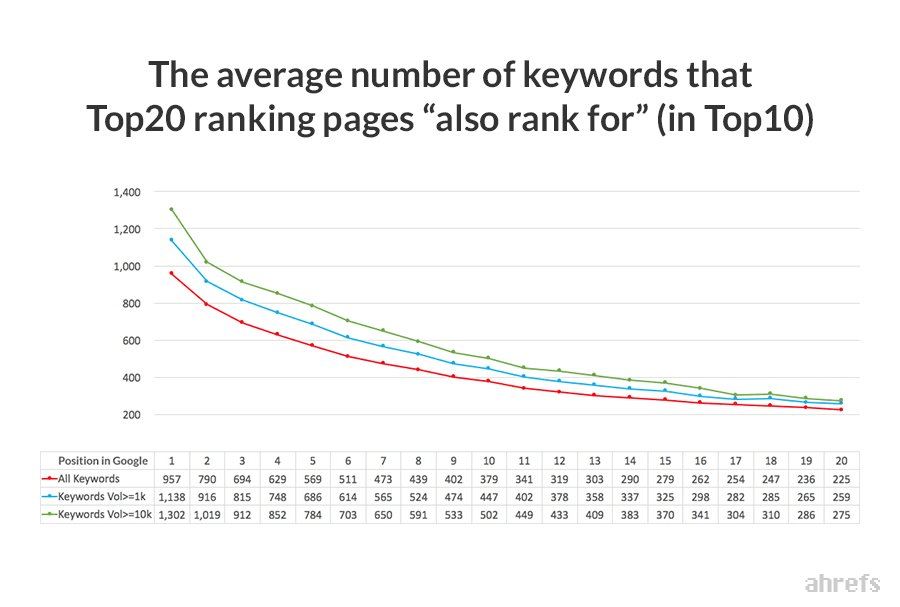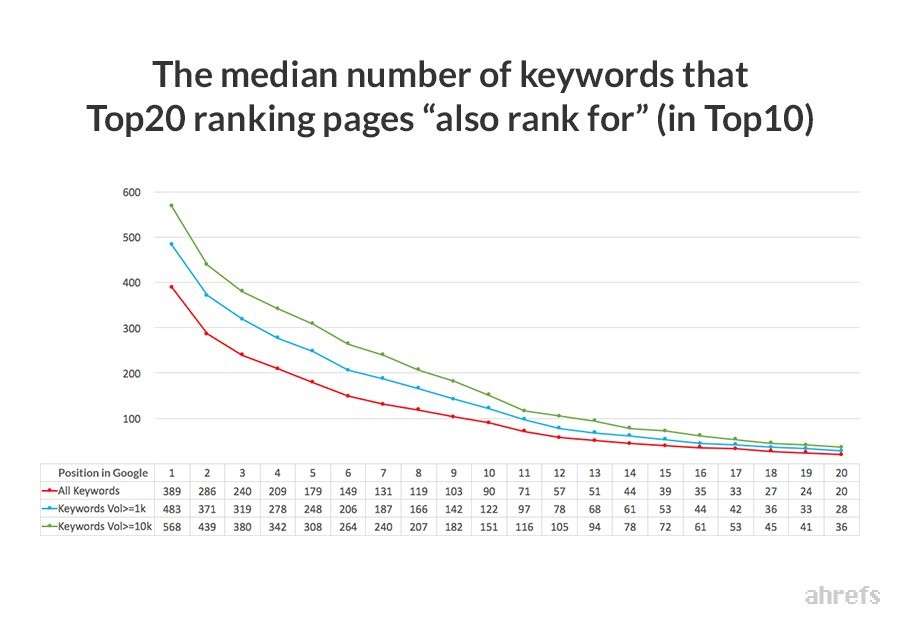How many SEO keywords should you target on each page is a common question that crosses every SEO expert’s thoughts. Should you try to utilize several keywords on each page or just one SEO keyword as your target?
Another frequent query on this subject is, “should you design completely new web pages for each keyword variation”?
In this article, we’ll address these frequently asked queries regarding the ideal keyword usage per page and explain why less is more in this case. Read on to learn more!
How many keywords for SEO?
In an ideal case scenario, you should concentrate on one primary keyword and two to three SEO keyword variations on each page. The relevant keywords for SEO should be placed on each of your pages, devoted to a single subject. So, choose one to three keywords for each page.
That is the short answer to the question of how many keywords per page you should target. To achieve higher rankings, you need to take into account a few extra factors.
Take a look at this example:

The above screenshot shows that this post ranks against 1.2k organic keywords. Furthermore, it’s getting a massive 8.9k organic traffic.

These are the keywords this blogpost is ranking for.
The head of content at Ahrefs, Josha Hardick, is the writer of this blog. Their main aim was to rank this blog for the keyword “website traffic”. However, when we see results, this blog doesn’t appear among the two three results for this keyword.
Despite this fact, this post is receiving a decent amount of traffic. It is ranking for the keywords that weren’t targeted. These are:
- Website popularity
- Website traffic estimator
Google ranked this post for these keywords. And the main reason is that the author intended to write this content human, not targeting the search engines. The crux here is to target SEO keywords for every page individually. The result will be better SEO and subsequently, more traffic.
How do I choose keywords for a page?
It’s not uncommon for beginners in the SEO field to get confused about which keywords you should target from different variants.
To decided this, it’s important that you take the help of different tools, such as Ahref, SemRush or Google Keywords Planner.
The following are some of the basic rules to choose your main keyword:
- High volume keywords should be preferred
- Keywords with low competition should be preferred
- Search intent shouldn’t be neglected.
A Single Page Can Rank for Numerous Queries
As per studies conducted by Ahref, one page can rank for hundreds and thousands of queries. Isn’t it amazing?
The number of keywords a page ranks for majorly depends on the search volume and, of course, the page’s readiness for SEO.


The number of keywords you should emphasize on:
It depends on how long your content is. Generally, you should focus on two to three keywords for each page at the very least. This consists of one main keyword and two closely linked search phrases.
Compared to the older times, Google has become Smart. It now knows different words convey the same meaning. Therefore, the requirement to repeat the keyword, just for the sake of adding it to the content, is not necessary anymore.
john Muller said in 2013
One of the difficulties our algorithms have with your pages is that they appear to be using the same keywords over and over again — making it hard to recognize what’s really unique & compelling on your site. For instance looking at the cached version of your homepage: http://webcache.googleusercontent.com/search?q=cache:http://www.just-tow.co.uk/&strip=1 – I see over 1000 mentions of “towbar.” The same is the case on URLs like http://www.just-tow.co.uk/towbars/honda-tow-bars/honda-civic-towbars.html (where even the URL includes 3 mentions of towbars). Our algorithms are pretty good at recognizing important content on your pages, you don’t have to repeat them unnecessarily.
Should You be Targeting the same or identical Keywords for Different Pages of a Website?
Experts are of the view that you shouldn’t repeat same keywords on different pages of a website. For every page, there should be a separate set of keywords. This will help your individual pages to rank separately on different keywords.
What is Keywords cannibalization and How It Affects Ranking?
If you have too many similar or identical keywords in your website content, it can be a case of keyword cannibalization. What this means is that Google, and other search engines, cannot identify which content to rank. As a result, you may get a higher ranking for a web page you were not aiming for.
You can prevent keywords cannibalization by incorporating the following ways:
- Merging content of two pages that offer similar information.
- Deleting content if it’s no longer useful. This is usually a measure of the last resort.
- Removing keywords that you do not want to target. This method is ideal if you do not want to delete content.
- You can also change your internal linking structure or alter inbound link requests.
What is keyword density?
Keyword density is a measure or percentage of the keywords that appear in the total number of words on a page or within a piece of content. It is also known as keyword frequency or the frequency with which a specific keyword appears on a webpage.
How to Calculating Keyword Density {in the view of most SEO Experts}
If required, keyword density can also be calculated as a numerical value. To calculate a webpage’s keyword density, just divide the number of times a keyword is used by the total number of words on the page. Then multiply it by 100.
Take a look at this example:
The word count of the content on your page is 2,000. And you have repeated the keyword 20 times. So, using the aforementioned formula, you will get the result, which is:
20 / 2000 = 0.01
Now, all you have to do is to multiply this figure by 100 and get a percentage. In this example, the result will be 1%.
What is ideal keyword density? (in the view of most SEO Experts)
While there’s no rule of thumb here, SEO experts usually recommend having the ideal keyword density between 1% and 3%. However, it’s important to understand the following information before calculating keyword density.
Is keyword density a commonly believed myth?
Generally speaking, “ideal” keyword density is a more of a concept than a reality.
In fact, in 2011, Matt Cutts from Google said: “If you think that you can just say, ‘I’m going to have 14.5% keyword density, or 7%, or 77%, and that will mean I’ll rank number one,’ that’s really not the case. That’s not the way search engine rankings work.”(Quote can not be rewriter, leave it as it is )
Editors Note: We are not advocating the keyword density after Matt Cutts statement on this. We are just trying to prove that there is no such thing as Keyword Density
How many words should a web page have?
The answer to the question of how many words to include on your page depends less on a particular number and more on the user experience. Concentrate on creating original, worthwhile material that fully covers your subject. Consider the following queries for yourself:
- Have I answered any concerns or worries that my reader might have?
- Have I presented the topic clearly and in a creative way?
- Is my writing clear and comprehensive enough for my readers to understand it?
- Is my information valuable, original, and informative?
If your content is lengthy, the answer to the question “how many SEO keywords per page” could be five, six, or even more.
As long as the content keeps sounding natural, it would be acceptable. Just remember that you should use your keywords effectively throughout the website to have the maximum SEO benefit possible.
How many Keywords you should be targetting for the homepage?
Ideally, you should have at least three to four keywords on your website’s homepage for optimal results. Since it’s an important page on your website, it should be treated like on. Targeting three to four keywords on the homepage will help you get maximum SEO benefits.
How many keywords should I use in a blog?
The ideal approach is to use one or two long-tail keywords in one blog. Of course, multiple keywords can be used in one blog post. However, it’s important to keep the number lower so that you can optimize it for limited keywords.
Wrapping Up
We hope that this guide on “how many keywords should a webpage has for SEO” is helpful to you.
Targeting one particular keyword and two to three closely similar keyword variations is the primary goal. In an organic SEO effort, adding more keywords to your page won’t help ensure conversions. Instead, you should choose your keywords based on how well they describe your company’s unique selling points, target market, and product or service. More than keyword density, your page’s content quality and relevance to your target audience might influence your conversion rate and ranking.

